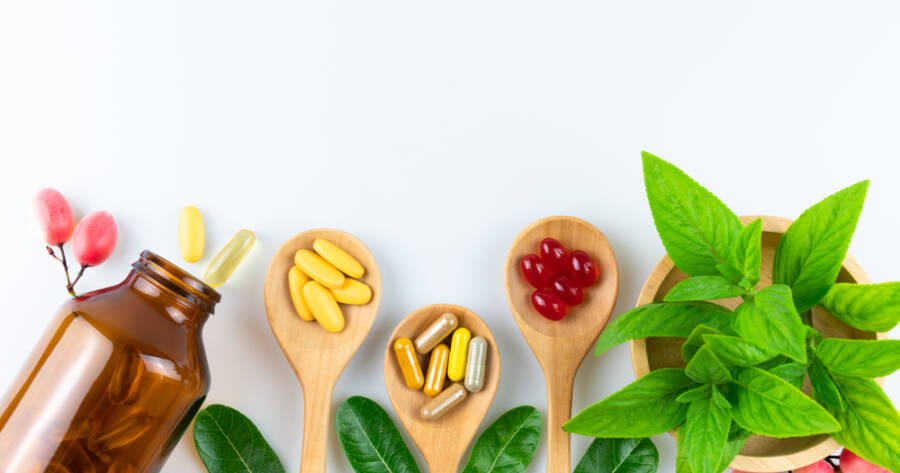When cold and flu season hits—or when you just want to stay one step ahead of whatever’s going around—immunity supplements often become the first line of defense. Walk into any health store or scroll through your social feed, and you’ll find a wide range of products promising to “boost” your immune system. But not all supplements are backed by science, and some are far more effective than others at supporting your body’s natural defense mechanisms.
Discover some of the most popular immunity-boosting ingredients like elderberry, zinc, vitamin C, probiotics, and break down what actually works, what’s worth skipping, and how to make smart choices when shopping for supplements.
1. Vitamin C: Classic Support with Real Science
-
Best For: Immune support during cold and flu season
-
How It Works: Supports immune cell function and acts as an antioxidant
-
Effective Dose: 200–500 mg daily for general support; up to 1000 mg when sick
Vitamin C is probably the most well-known immunity supplement—and for good reason. It helps stimulate the production of white blood cells and plays a key role in fighting off infections. While it may not prevent you from getting sick, studies show it can slightly reduce the duration and severity of colds when taken consistently.
It’s best to get vitamin C from food sources (like citrus, berries, and leafy greens), but supplements are useful when your intake is low. Just avoid mega-dosing over 2000 mg per day, which can lead to digestive upset.
Verdict: Worth taking, especially if your diet is low in fruits and vegetables.
2. Zinc: A Heavy Hitter for Short-Term Immune Defense
-
Best For: Short-term immune support at first sign of illness
-
How It Works: Supports immune cell development and inflammatory response
-
Effective Dose: 8–11 mg daily (up to 40 mg short-term during illness)
Zinc plays a vital role in immune function, and studies suggest that taking zinc within 24 hours of the onset of cold symptoms can reduce their length and severity. Lozenges or capsules with zinc acetate or zinc gluconate are the most effective.
That said, more is not always better. High doses over long periods can actually suppress immunity and interfere with copper absorption, so it’s best used short-term—especially during times of increased stress or illness.
Verdict: Effective when taken early during sickness; don’t overdo it long-term.
3. Elderberry: Nature’s Antiviral Powerhouse?
-
Best For: Supporting the body during viral infections
-
How It Works: May reduce virus replication and inflammation
-
Effective Dose: 300–600 mg of elderberry extract daily
Elderberry (specifically Sambucus nigra) has long been used in traditional medicine, and recent studies support its potential as a natural antiviral. Research shows it may reduce the severity and duration of colds and flu—particularly when taken at the first sign of symptoms.
It’s rich in antioxidants and flavonoids, which help reduce inflammation and support immune response. Look for syrups, lozenges, or gummies that use standardized elderberry extract for the best results.
Verdict: Promising natural remedy—especially as a first response to illness.
4. Probiotics: Gut Health = Immune Health
-
Best For: Long-term immune regulation and prevention
-
How It Works: Supports gut microbiome, which regulates immune function
-
Effective Strains: Lactobacillus, Bifidobacterium, and Saccharomyces
More than 70% of your immune system lives in your gut, so it’s no surprise that maintaining a healthy microbiome can influence how your body responds to pathogens. Probiotics don’t “boost” your immune system in a direct way, but they help regulate it—keeping inflammation in check and improving your body’s resilience.
Daily use of a broad-spectrum probiotic may reduce the frequency of respiratory infections and improve response to other immune-supportive supplements. Look for products with at least 10 billion CFUs and several strains for maximum effectiveness.
Verdict: Excellent for long-term immune support and gut health.
5. Vitamin D: Underrated but Essential
-
Best For: Supporting overall immune response
-
How It Works: Modulates innate and adaptive immune function
-
Effective Dose: 1000–2000 IU daily (check with your doctor for ideal level)
Vitamin D isn’t as flashy as elderberry or zinc, but it’s essential for immune health—and many people are deficient, especially in colder months or if they spend most of their time indoors. Low vitamin D levels are linked to increased susceptibility to infections.
Supplementing with vitamin D3 can reduce the risk of respiratory infections and support your body’s ability to fight off viruses and bacteria. A simple blood test can tell you if you’re low.
Verdict: Crucial for immune health, especially if you’re deficient.
6. Echinacea: Mixed Results
-
Best For: Occasional cold and flu support
-
How It Works: May stimulate immune activity
-
Effective Dose: Varies by preparation (not standardized)
Echinacea is a popular herb that’s often found in immune support blends. Some studies show it may slightly reduce cold symptoms or duration when taken early, while others find little benefit. Results vary widely depending on the species used and the dosage.
If you choose to take echinacea, look for Echinacea purpurea and use it at the first sign of illness, not as a daily preventive.
Verdict: Inconsistent results—might help, but not a must-have.
What Really Works—and What Doesn’t
When it comes to immune support, consistency and strategy matter more than chasing the latest trend. Supplements like vitamin D, magnesium, and probiotics offer excellent baseline support, while zinc, elderberry, and vitamin C can be used as needed during illness or high-stress periods.
No supplement can replace sleep, hydration, stress management, and a nutrient-rich diet—but the right combo can give your immune system a welcome edge. Always talk to your healthcare provider before starting new supplements, especially if you’re taking medications or managing chronic conditions. Because the best kind of immune support is the one that keeps you strong—without side effects.

